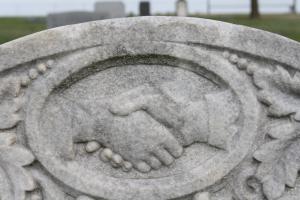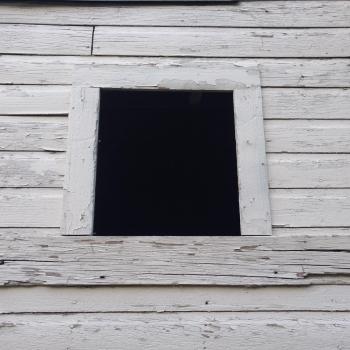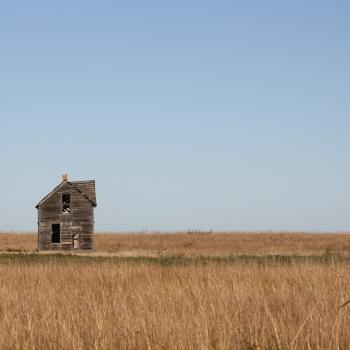
The apostle Paul instructs us to “work out your salvation with fear and trembling” (Philippians 2:12). What if that working out continues after death?
I wonder if this passage points to the nub of a broad doctrine of purgatory. Purgatory posits a state of being where those who have been saved by God’s grace are purified to be able to enter fully into the presence of God. Purgatory is about purgation, which is a word that means “purification.” It’s not a second chance for the dead.
While purgatory is an ancient Christian doctrine distinctly stewarded by the Catholic Church, it’s found purchase in some Orthodox circles, according to Timothy Kallistos Ware (The Orthodox Church, p.248). Martin Luther famously said: “the existence of purgatory I have never denied.” John Calvin rejected Purgatory. My spiritual ancestors the Anabaptists were all over the map. According to Thomas Finger, Balthasar Hubmaier speculated that “Christians might experience hell as purgatory and find forgiveness in the next life” (Contemporary Anabaptist Theology, p.521 note 50). Menno Simons called purgatory a doctrine “contrary to [Christ’s] word” and command (Why I Do Not Cease Teaching and Writing).
What the Reformers universally rejected was the grubby way the doctrine of purgatory played out in the medieval church, with the sale of indulgences by corrupt church officials touted as a means to free the beloved dead from the pain of purgatory.
What if there were another way forward? Writer Jerry Walls in his book Heaven, Hell, and Purgatory: Rethinking the Things That Matter Most seeks to “encourage Protestants to retrieve a version of the doctrine that is entirely compatible with ‘mere Christianity’” (p.113). While purgatory gets into unfamiliar territory for Protestants/Anabaptists/Evangelicals, the doctrine does help to make sense of how we get from where most of us are now–a drossy amalgam of sinner and saint–to where all of us we need to be to enter God’s utterly holy presence. Walls writes that most Protestants have simply held that believers are “zapped” with holiness at death (p.94). Christ’s blood covers everything. We’re good.
But there are keen biblical reasons to believe that sinlessness requires a post-mortem evolution rather than a revolution. Our lives and works will be tested by fire, writes Paul (1 Corinthians 3:13). “All of us must appear before the judgment seat of Christ” (2 Corinthians 5:10). “The one who began a good work among you will bring it to completion by the day of Jesus Christ” (Philippians 1:6). These passages are a long way from what Thomas Long calls “the medieval doctrine of purgatory, with its full array of gears and pulleys” (Accompany Them with Singing: The Christian Funeral, p.51). However, these Scriptures are suggestive of a process of sanctification that begins in life but is completed in death.
What happens after death is a mystery. Our Lord didn’t go into detail, but simply promised that for those who believe in him, he has prepared a place that is good, and that it is good because he is there (John 14:2-3). What if we came to understand that while our salvation is not in doubt, the effects of Christ’s grace still have to wend their way through our souls after death? There are places within us where our wills still resists God, our hearts still do not fully love him, our minds still do not fully believe. Through the ministrations of the Divine Physician we are cured of all that ails us. Maybe that’s the judgment Paul spoke of in 2 Corinthians and what we witness in Revelation 20:11-12. It’s a healing judgment, the cutting away of whatever sin still clings to us–or that we still cling to. Christ’s judgment accomplishes healing in the same way that cutting out a tumor does. It hurts, but we welcome it.
That conception of Christ’s healing judgment and ongoing sanctifying work is what I think underlies any attempt to reclaim a broad doctrine of purgatory–a doctrine of purgatory for the rest of us. There are risks, but I’m convinced we shouldn’t write the idea off too easily or reflexively.
On this All Saints Day we remember with gladness and thanksgiving those who have died in the faith. Let us also renew our confidence in Christ’s healing mercy that extends beyond the grave.













